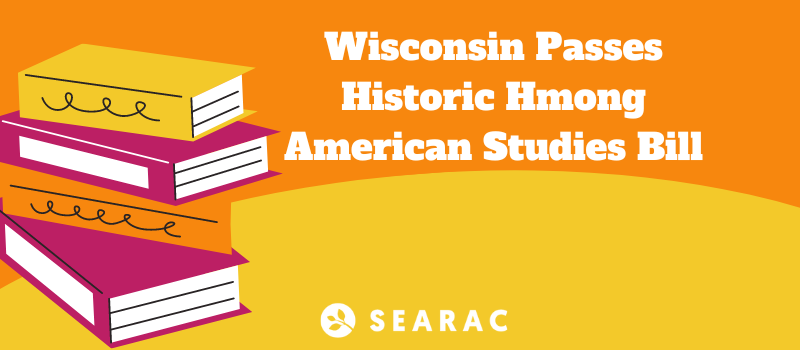March 7, 2019 IN: Education, National, Press Room
SEARAC Joins AAPI Groups in Support of University of North Carolina’s Race-Concious Admissions Policies

Washington, DC – The Southeast Asia Resource Action Center (SEARAC) alongside Asian Americans Advancing Justice and more than 60 Asian American and Pacific Islander (AAPI) groups and 25 professors, with Fox Rothschild LLP filed an amicus brief earlier this week in support of race-conscious holistic admissions at the University of North Carolina at Chapel Hill (UNC). Participants in this brief whole-heartedly attest that race-conscious admissions policies result in more equitable and integrated universities and enhance the educational experiences of all students.
This amicus brief opposes the lawsuit filed by conservative activist Ed Blum and his group Students for Fair Admissions (SFFA) to end race-conscious admissions at universities. In its briefing, SFFA suggests that in addition to whites, Asian Americans are also supposedly disadvantaged by UNC’s race-conscious admissions policy.
“SEARAC proudly stands with our AAPI community members today, to once again state our resounding support for race-concious admission policies that work toward racial and social justice for all students,” said Quyen Dinh, executive director at SEARAC. “Southeast Asian American students, like many students of color, continue to face systemic barriers to accessing post-secondary education. Instead of eliminating race-concious admissions policies that work to combat education inequity in institutes of higher learning, we must support these policies that rightly urge colleges to evaluate students holistically.”
The consideration of race in university admissions, one of many factors in the admissions process, has been critical for many schools to understand fully an applicant’s background and experiences beyond test scores.
“The data show that these policies help all students of color, including Asian Americans,” said Dr. OiYan Poon, assistant professor of Higher Education and director of the Race & Intersectional Studies for Educational Equity (RISE Center) at Colorado State University. “Removing the consideration of race in admissions would hurt the most marginalized of AAPI students and be detrimental to the educational climate and environment, from which all students benefit.”
Race-conscious admissions policies have been credited with negating the inherent racial biases of other admission factors, such as SAT/ACT scores. They are also a factor in creating more diverse student bodies on university campuses that more closely reflect regional or national demographics. Studies show that colleges and universities that reach the highest levels of diversity have fewer incidents of racial hostility. Students report having a more positive learning experience in schools with race-conscious admissions processes.
“Removing the consideration of race at UNC would be a disservice to all communities of color, including the diverse AAPI subgroups in North Carolina,” said Chavi Khanna Koneru, executive director of North Carolina Asian Americans Together. “Our state is home to significant ethnic minority communities from Southeast Asia who experience varying economic and educational barriers. Saying that Asian Americans are not underrepresented minorities at UNC only obscures the needs of underrepresented Asian Americans.”
“The growing Southeast Asian community in our state is not a monolith; each student deserves the holistic review long prized by our state’s flagship university,” said Matthew Nis Leerberg, North Carolina-based partner at national law firm Fox Rothschild LLP. “We are proud to have had the opportunity to work alongside Asian Americans Advancing Justice to speak for that community on an issue critical to the future of our state and the nation.”
SEARAC stands firmly in support of UNC, race-conscious admissions policies, and all students of color. We will continue to fight alongside other communities of color for greater equity and justice in this country.
NEW EDUCATION RESOURCE
SEARAC advocates for affirmative action and data disaggregation, but what do these two policies entail?
We’ve broken them down in this brand-new education fact sheet. Have a look and learn more!





